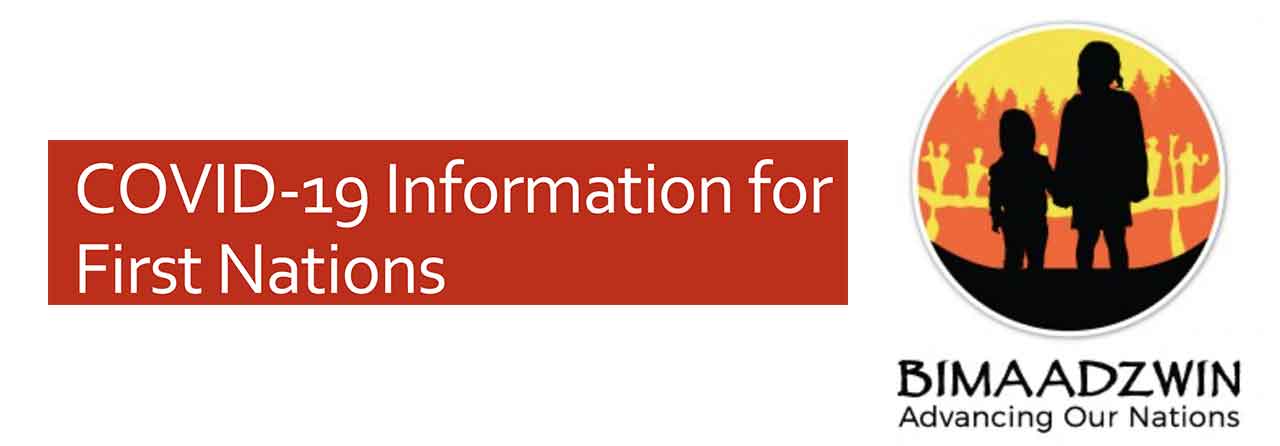TORONTO – Following the advice of the Chief Medical Officer of Health, the Ontario government is reducing the list of businesses classified as essential and ordering more workplaces to close. This measure is necessary to prevent the spread of COVID-19 and protect the health of the people of Ontario while ensuring that necessary goods and services remain available.
The government is ordering all businesses not covered by the updated Emergency Order to close effective as of Saturday, April 4, 2020 at 11:59 p.m. This closure will be in effect for 14 days, with the possibility of an extension as the situation evolves. Teleworking, online commerce and other innovative ways of working remotely are permitted at all times and are strongly encouraged for all businesses. All supply chains necessary for the production of vital food and healthcare supplies are being protected and remain intact.
Following advice from Ontario’s Chief Medical Officer of Health, by 11:59 p.m. Saturday, April 4, 2020, businesses that are not identified on this list must close their physical locations.
Supply chains
- Businesses that supply other essential businesses or essential services within Ontario, or that supply business or services that have been declared essential in a jurisdiction outside of Ontario, with the support, products, supplies, systems, or services, including processing, packaging, warehousing, distribution, delivery, and maintenance necessary to operate.
Food
- Businesses that primarily sell food, beverages and consumer products necessary to maintain households and businesses including:
- Supermarkets and grocery stores.
- Convenience stores.
- Discount and big-box retailers selling groceries.
- Restaurants (take-out, drive-through and delivery service only).
- Beer and wine and liquor stores.
Services
- Pharmacies.
- Gas stations and other fuel suppliers.
- Laundromats and drycleaners.
- Security services for residences, businesses and other properties.
- Vehicle and equipment repair and essential maintenance and vehicle and equipment rental services.
- Courier, postal, shipping, moving and delivery services.
- Funeral and related services.
- Staffing services including providing temporary help.
- Veterinary services (urgent care only) and other businesses that provide for the health and welfare of animals, including farms, boarding kennels, stables, animal shelters, zoos, aquariums and research facilities.
- Home child care services of up to six children as permitted under the Child Care and Early Years Act, 2014, and child care centres for essential workers authorized to operate in accordance with Ontario Regulation 51/20 (Order Under Subsection 7.0.2 (4) of the Act – Closure of Establishments) made under the Act.
- Hotels, motels, other shared rental accommodation including student residences, except for seasonal campgrounds and any pools, fitness centres, meeting rooms and other recreational facilities that may be part of the operations of these businesses.
- Cheque cashing services.
Services to the public that are restricted to alternative methods of sale
- Stores that sell any of the following items and provide them to the customer only through an alternative method of sale such as curb side pick-up or delivery, except in exceptional circumstances:
- Hardware products.
- Vehicle parts and supplies.
- Pet and animal supplies.
- Office supplies and computer products including computer repair.
- Safety supplies.
Financial services
- Businesses that provide the following financial services:
- Capital markets and related securities trading and advisory services.
- Banking/credit union activities including credit intermediation.
- Insurance.
- Land registration services.
- Real estate agent services.
- Pension and benefits payment services.
- Financial services including payroll and payment processing and accounting and tax services.
Telecommunications and IT infrastructure/service providers
- Information Technology (IT) services, including online services, software products and the facilities necessary for their operation and delivery.
- Telecommunications providers and services (phone, internet, radio, cell phones etc.) and facilities necessary for their operation and delivery.
- Newspapers, radio and television broadcasting.
Maintenance
- Maintenance, repair and property management services strictly necessary to manage and maintain the safety, security, sanitation and essential operation of institutional, commercial, industrial and residential properties and buildings.
Transportation services
- Businesses and facilities that provide transportation services, including,
- transportation services provided by air, water, road, and rail, including taxis and other private transportation providers, and
- support services for transportation services, including,
- logistical support, distribution services, warehousing and storage, truck stops and tow operators,
- services that support the operations and safety of transportation systems including maintenance and repairs, and
- marinas, but only to the extent that the marina is necessary to enable individuals to access their primary place of residence.
- Businesses that provide and support online retail, including by providing warehousing, storage and distribution of goods that are ordered online.
Manufacturing
- Businesses that extract, manufacture, process and distribute goods, products, equipment and materials, including businesses that manufacture inputs to other manufacturers, (e.g. primary metal/ steel, blow molding, component manufacturers, chemicals, etc. that feed the end-product manufacturer), regardless of whether those other manufacturers are inside or outside of Ontario, together with businesses that support and facilitate the movement of goods within integrated North American and global supply chains.
Agriculture and food production
- Businesses that produce food and beverages, and agricultural products including plants, including by farming, harvesting, aquaculture, hunting and fishing.
- Businesses that process, manufacture or distribute food, beverages, crops, agricultural products, animal products and by-products.
- Businesses that support the food or agricultural products supply chains and the health and safety of food, animals and plants.
Construction
- Construction projects and services associated with the healthcare sector, including new facilities, expansions, renovations and conversion of spaces that could be repurposed for health care space.
- Construction projects and services required to ensure safe and reliable operations of, or to provide new capacity in, critical provincial infrastructure, including transit, transportation, energy and justice sectors beyond the day-to-day maintenance.
- Critical industrial construction activities required for,
- the maintenance and operations of petrochemical plants and refineries,
- significant industrial petrochemical projects where preliminary work has already commenced,
- industrial construction and modifications to existing industrial structures limited solely to work necessary for the production, maintenance, and/or enhancement of Personal Protective Equipment, medical devices (such as ventilators), and other identified products directly related to combatting the COVID-19 pandemic.
- Residential construction projects where,
- a footing permit has been granted for single family, semi-detached and townhomes
- an above grade structural permit has been granted for condominiums, mixed use and other buildings, or
- the project involves renovations to residential properties and construction work was started before April 4, 2020.
- Construction and maintenance activities necessary to temporarily close construction sites that have paused or are not active and to ensure ongoing public safety.
Resources and energy
- Businesses that provide and ensure the domestic and global continuity of supply of resources, including mining, forestry, aggregates, petroleum, petroleum by-products and chemicals.
- Electricity generation, transmission, distribution and storage and natural gas distribution, transmission and storage.
Community services
- Businesses that deliver or support the delivery of services including:
- Sewage treatment and disposal.
- Collecting, transporting, storing, processing, disposing or recycling of any type of waste.
- Potable drinking water.
- Critical infrastructure repair and maintenance including roads, dams, bridges etc.
- Environmental rehabilitation, management and monitoring, and spill clean up and response.
- Administrative authorities that regulate and inspect businesses.
- Professional and social services that support the legal and justice system.
- Government services including but not limited to policing and law enforcement, fire and emergency services, paramedics, coroner and pathology services, corrections and court services, licences and permits.
Research
- Businesses and organizations that maintain research facilities and engage in research, including medical research and other research and development activities.
Health care and social services
- Organizations and providers that deliver home care services or personal support services to seniors and persons with disabilities.
- Businesses that sell, rent or repair assistive/mobility/medical devices, aids and/or supplies.
- Regulated health professionals (urgent care only) including dentists, optometrists, chiropractic services, ophthalmologists, physical and occupational therapists and podiatrists.
- Organizations that provide health care including retirement homes, hospitals, clinics, long-term care facilities, independent health facilities and mental health and addictions counselling supports.
- Laboratories and specimen collection centres.
- Manufacturers, wholesalers, distributors and retailers of pharmaceutical products and medical supplies, including medications, medical isotopes, vaccines and antivirals, medical devices and medical supplies.
- Manufacturers, distributors and businesses that provide logistical support of or for products and/or services that support the delivery of health care in all locations.
- Not-for-profit organizations that provide critical personal support services in home or residential services for individuals with physical disabilities.
- Not-for profit organizations that support the provision of food, shelter, safety or protection, and/or social services and other necessities of life to economically disadvantaged and other vulnerable individuals.
“We are facing a critical moment in the fight against COVID-19 and we must do everything in our power to keep everyone safe and healthy and prevent our health care system from being overwhelmed,” said Premier Ford. “Everyone must do their part to stop the spread and flatten the curve. If you are not an essential business, you need to close your doors, work from home if possible and play a role to help contain this outbreak. This is a matter of life and death.”
As a temporary measure the Ontario government has revised the list of essential businesses. The updated list will direct additional businesses to close and restricts specified businesses to providing services by alternate methods such as curb side pick up and delivery, except in exceptional circumstances. This includes stores that sell hardware products, vehicle parts and supplies, pet and animal supplies, office supplies and computer products and repairs and safety supplies.
“We have now reached a critical time in our fight against COVID-19.” said Christine Elliott, Deputy Premier and Minister of Health “Every step taken by the province and every effort made by each of us to avoid close contact with others are the key to our success as a province to stop the spread of this virus.”
Only critical construction projects will continue, including industrial projects such as refineries and petrochemical plants and infrastructure projects such as new hospitals, roads and bridges. New starts in residential projects will stop, while residential construction that is near completion will continue. Business-owners with questions concerning their essential business status are encouraged to call the Stop the Spread hotline at 1-888-444-3659. The hotline is available from 8:30 a.m.― 9:00 p.m. Monday to Friday and 8:30 a.m.— 5:00 p.m. Saturday and Sunday.
“We recognize the toll this outbreak is taking on business owners and workers,” said Vic Fedeli, Minister of Economic Development, Job Creation and Trade. “Ontario businesses are top of mind during this unprecedented time. We know that the only way to ensure the health of our businesses and our economy is to ensure the health of all Ontarians.”
The government is implementing additional measures to protect frontline workers in essential businesses by adding more than 60 special consultants and officers and doubling the number of phone agents at its Health and Safety Call Centre to 50 to make it easier for workers to report safety concerns. Workers worried their workplaces are unsafe can phone 1-877-202-0008 to speak with an agent.
“If you’re a worker on the frontlines of this outbreak, you should know we’re doing everything in our power to keep you safe at work,” said Monte McNaughton, Minister of Labour, Training and Skills Development. “We’re beefing up our inspectors and making it easier for you to report your concerns. We’re working around the clock.”








